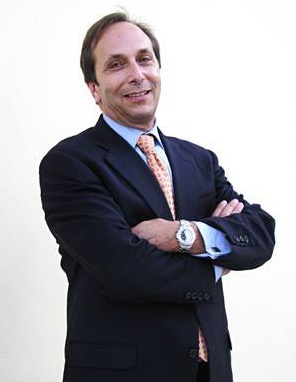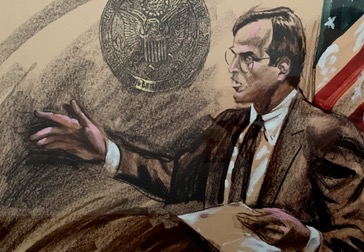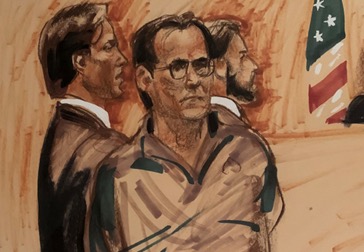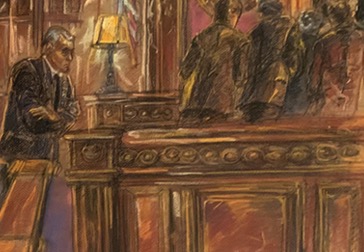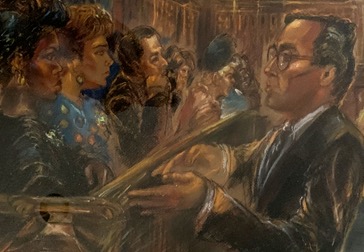One million Floridians can’t vote due to felony convictions
One million Floridians can’t vote due to felony convictions. That must change, influencers say.
More than one million Floridians won’t be able to cast a ballot this election year due to a felony conviction, and that needs to change, a panel of the state’s leading voices urged this week.
The latest survey of the Florida Influencers found near-unanimous support for a measure on the ballot this November that would restore voting rights for convicted felons who have fully completed their sentences, with exceptions for murder and sex offenders. All told, 95 percent of respondents said they backed Amendment 4.
“Our penal system is the means by which lawbreakers are to satisfy their debt to society. To continue to punish these individuals after they have fully served their sentences seems needlessly punitive,” said Jaret Davis, the co-managing shareholder of Greenberg Traurig’s Miami law office. “By disenfranchising more than one million Florida residents, we make it impossible to ever truly have a representative democracy.”
Florida is one of just four states where convicted felons do not regain the right to vote after serving all prison, parole and probation time. That policy has resulted in the disenfranchisement of nearly 1.5 million Floridians — or roughly 10 percent of the eligible voting population, according to the Sentencing Project, by far the most of any state in the country.
“Restoring voter rights to former felons is a matter of basic fairness and second chances. In my opinion these people have paid their debt and once it has been paid we don’t have the right to add to it,” said Terry DeCarlo, an Orlando-based LGBT activist. “Restoring their rights gives them a chance to be full members of their community, plus the amendment would bring Florida law in line with other states.”
In the run-up to the November elections, the Florida Influencers are sharing their ideas on how to address policy concerns facing the state and responding to questions from readers of the Miami Herald, Bradenton Herald and el Nuevo Herald.
Some Influencers were open to allowing felons to vote, but with some additional requirements or restrictions. Former Republican Sen. Mel Martinez suggested that there should be a required “period of time of good behavior” for felons after completing their sentences. Carol Dover, the president of the Tallahassee-based Florida Restaurant and Lodging Association, argued the same policy shouldn’t apply to those with multiple felony convictions.
“Once they have paid their debt to society, I believe they should have their voting rights restored,” Dover said. “However, I do believe that if they are repeat offenders, then there is a point in which no matter how much time they serve to pay their debt, they would still lose that right.”
The Influencers appear to be on the same page as the general public. A recent poll from the University of North Florida found that 71 percent of voters support Amendment 4. The constitutional amendment needs at least 60 percent support for approval.
“We cannot afford to be on the wrong side of history or our sense of justice,” said Marlon Hill, a partner at the law firm Hamilton, Miller & Birthisel. “Florida must accelerate its way into a world of compassionate second chances to those who have paid their debt to our state. This issue impacts all persons in our multicultural populace.”
In the governor’s race, Democrat Andrew Gillum supports the measure while Republican Ron DeSantis hasn’t publicly stated his position.
Readers who weighed in on the topic of criminal justice using the “Your Voice” online tool posed the following question this week: “Can we develop a system where non-violent criminals do not go to prison?”
Overall, the Influencers saw this as a worthwhile goal, with many saying that rehabilitation would be more effective for cases involving drug possession and similar offenses than jail time.
“There are also many non-violent crimes for which the system ought to allow leniency and promote rehabilitation as the alternative goal of the justice system. Prisons do not rehabilitate,” said Jessica Goldman Srebnick, the CEO Goldman Properties. “Elected officials need to prioritize the desire to find solutions for a broken prison system and in doing so need to think about alternative approaches.”
Some noted that system has worked for youth offenders, and could be applied at the adult level as well.
“In the juvenile arena, non-violent offenders can be diverted,” said Cindy Arenberg Seltzer, the president and CEO of the Children’s Services Council of Broward County. “They have an opportunity to do community service, make restitution to the victim where appropriate and prevent further incursion into the system.”
But others expressed concerns those who committed serious non-drug related crimes would be let off the hook.
“There are some non-violent crimes, particularly white-collar crimes where the perpetrator should have known better, … that are just as bad as some violent crimes and should require incarceration,” said Jorge Perez, the chairman and CEO of the Related Group.
By Adam Wollner
October 1, 2018
awollner@mcclatchydc.com
Read more here: https://www.miamiherald.com/latest-news/article219171925.html#storylink=cpy

